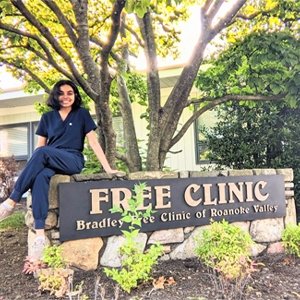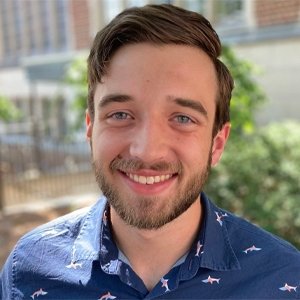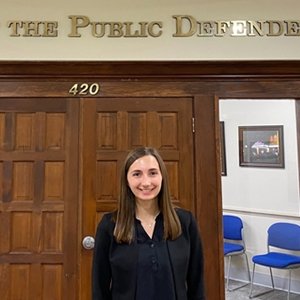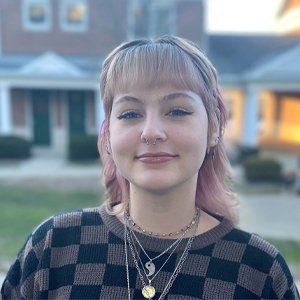Q: What interested you in the Shepherd Internship?
A: The great part about it is that it’s focused within your field. Mine is legal work — I’m pre-law and I wanted to work in an office with attorneys. I chose public defenders because we represent people who can’t represent themselves.
Q: What do you do on a day-to-day basis?
A: There are two main things that I do — one is that I learn and observe. A lot. In the mornings, I typically go to court, juvenile, domestic and criminal court. I basically observe all the different cases that the attorneys have that I work with. I also help with discovery, where the prosecutors will print or send the police report. Sometimes they’re misdemeanors, sometimes they’re felonies. Recently I was with an investigator working on a case and he took me to the site, and I got to see what it was like on the investigative side.
Q: What interested you in the law route?
A: They always have something to do — each attorney has about 70 cases open. Within two days of receiving a case, you have to interview the person and fill out a form. Some of these people are incarcerated so you have to go to the jail, so I put in a lot of time at the jail as well. I love it, I love to help people. I know there’s issue or controversy. And some of these people are bad people, but I was talking with my supervisor the other day and he said, ‘there’s so many, there’s a certain percentage who aren’t bad people, they just made one bad decision.’ Everyone has a right to be represented, to actually see this side is really important.
Q: What is something you’ll be able to take from your internship?
A: It’s one of those jobs where you learn to be empathetic about people’s issues and problems, whether or not you agree with them. The way you present yourself professionally to someone who is revealing the most vulnerable side of themselves, that’s something you need to practice. I think that’s something that I could carry to my future internships or in grad school.
Q: What advice would you give to a first-time intern with SCHEP?
A: It's an entirely new process and lifestyle that you live for so many weeks. Sometimes It’s hard to do something new because change is hard. So I think if you fully accept that change, it'll make it a lot easier to take constructive criticism more easily and learn.




